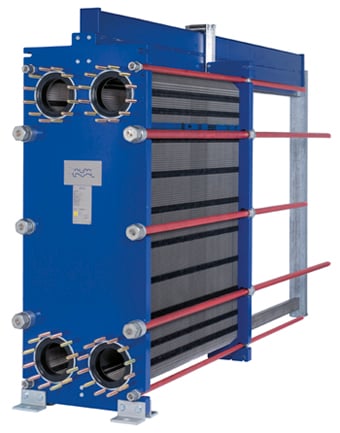Ten top tips for gasketed plate heat exchangers
Ten top tips to keep your gasketed plate heat exchanger in tip top condition
 Make sure that the operating conditions (temperatures and flow rates) comply with the design specifications.
Make sure that the operating conditions (temperatures and flow rates) comply with the design specifications.- At start-up, vent the heat exchanger but open and close the valves slowly to avoid pressure surges and water hammer.
- Use upstream filters and strainers to remove particulate fouling and protect the heat exchanger.
- On a daily basis check for any changes in temperature or pressure and check for any signs of external leaks.
- On a regular basis keep the tightening bolts clean and well-lubricated.
- Use Performance Audit to avoid having to open the plate heat exchanger for inspection.
- Use Cleaning-In-Place (CIP) to avoid the need to open the heat exchanger for cleaning.
- Always keep stand-by units clean and dry. If a heat exchanger is taken out of service, flush with fresh water and drain it completely.
- Protect heat exchangers from water splash and rain. Avoid exposure to ultra violet rays and ozone typically generated from electrical sources.
- Only use genuine spare parts for guaranteed performance, reliability and equipment life. Maintain a stock of essential spare parts and follow the storage instructions.
Kuo galime jums padėti?
Kreipkitės į mus su bet kokiomis užklausomis ar klausimais.
